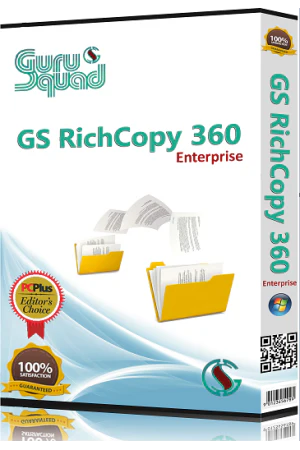In today’s competitive digital environment, Enterprise File Sync and Share (EFSS) solutions have become indispensable for organizations aiming to streamline operations while ensuring maximum data security. Companies across industries face the dual challenge of enabling seamless collaboration while protecting sensitive information against rising cybersecurity threats. EFSS platforms solve both challenges by offering a unified approach to file management, synchronization, and sharing that enhances productivity while fortifying data protection measures.
What is EFSS and Why It Matters for Modern Businesses?
Enterprise File Sync and Share (EFSS) refers to a suite of cloud-based or on-premise solutions that allow employees to securely store, access, and share files across devices. Unlike consumer-grade file sharing applications, EFSS platforms are built with enterprise-level requirements in mind. They include features such as:
End-to-end encryption for files in transit and at rest.
Granular access control with role-based permissions.
Advanced collaboration tools such as real-time co-authoring.
Compliance support for regulations like GDPR, HIPAA, and ISO standards.
Mobile access to ensure work continues beyond office boundaries.
The result is a solution that not only improves workflow efficiency but also ensures compliance and mitigates risks tied to unauthorized access or data breaches.
Boosting Productivity with EFSS
1. Seamless Cross-Device Accessibility
One of the primary benefits of EFSS is uninterrupted access to files from any device—desktop, tablet, or smartphone. This ensures that employees can continue working regardless of their location, supporting remote and hybrid work models. By eliminating the need to physically transfer files or rely on insecure sharing methods, EFSS boosts both efficiency and speed of operations.
2. Real-Time Collaboration and Co-Authoring
Traditional file-sharing methods often lead to confusion with multiple versions of the same document circulating among team members. EFSS platforms solve this by offering real-time editing and version control. Teams can co-author documents simultaneously, track changes, and revert to previous versions whenever necessary. This reduces redundancies, shortens project timelines, and fosters collaboration without geographical barriers.
3. Automated Synchronization
EFSS ensures that files are automatically synchronized across all devices. When one user updates a document, the changes are instantly reflected everywhere. This removes the risk of miscommunication and wasted time caused by outdated files. The automation also eliminates the need for manual uploads, ensuring employees focus on high-value tasks instead of repetitive file management.
4. Integration with Business Applications
Modern EFSS platforms integrate seamlessly with popular productivity tools like Microsoft 365, Google Workspace, Salesforce, and Slack. This means employees can access, share, and edit files directly from the applications they already use daily, significantly reducing friction in workflows.
Enhancing Data Security with EFSS
1. Advanced Encryption Protocols
Data security is the backbone of EFSS solutions. All files are encrypted at rest and in transit using robust protocols such as AES-256 and SSL/TLS. This ensures that even if files are intercepted, they remain unreadable to unauthorized parties.
2. Granular Access Control
Administrators can define access levels based on roles, departments, or projects. For example, sensitive financial records may only be accessible to the finance team. This granular access management reduces the risk of insider threats and accidental data leaks.
3. Secure External Sharing
Businesses frequently collaborate with partners, vendors, or clients. EFSS solutions provide secure external sharing options with password-protected links, expiration dates, and download restrictions. This ensures external stakeholders can access only what is necessary—nothing more.
4. Data Loss Prevention (DLP) Tools
Many EFSS platforms incorporate DLP policies that prevent unauthorized sharing of confidential files. Alerts and automatic restrictions are triggered if users attempt to upload sensitive documents outside the secure ecosystem.
5. Audit Trails and Compliance Reporting
Every file activity—upload, download, modification, or share—is logged in detailed audit trails. This provides accountability, transparency, and simplifies compliance reporting for industries bound by strict regulations. By centralizing audit data, EFSS makes it easier for organizations to meet compliance demands.
Driving Operational Efficiency with EFSS
Streamlined Workflows
By consolidating file storage, sharing, and collaboration into one platform, EFSS eliminates the need for multiple disconnected tools. This streamlined approach reduces IT complexity, lowers costs, and increases user adoption.
Remote Work Enablement
As remote work becomes the norm, EFSS provides the secure digital workspace employees need. Whether accessing corporate data from home, during travel, or on client sites, teams can work securely without compromising productivity.
Reduced IT Burden
IT teams benefit from EFSS through centralized control panels that manage file access, monitor usage, and enforce policies. Automated updates, patching, and integrations further reduce IT workloads, allowing them to focus on strategic initiatives instead of day-to-day troubleshooting.
Key Features Businesses Should Look for in EFSS
When selecting an EFSS platform, organizations should prioritize solutions that offer:
Scalability to grow with organizational needs.
Multi-factor authentication (MFA) for an extra layer of security.
Hybrid deployment options for businesses needing both cloud and on-premise flexibility.
Advanced search capabilities for quick file retrieval.
Mobile device management (MDM) to secure smartphones and tablets accessing enterprise files.
The Competitive Advantage of EFSS
Organizations leveraging EFSS not only boost productivity but also achieve a competitive edge by enabling faster project execution, improved customer responsiveness, and secure data handling. In industries where compliance, data privacy, and speed are critical—such as healthcare, finance, and legal—EFSS has become a non-negotiable requirement.
By embracing EFSS, companies demonstrate their commitment to data protection, operational efficiency, and employee empowerment—factors that directly influence profitability and business continuity.
Conclusion
Enterprise File Sync and Share (EFSS) solutions represent a powerful blend of productivity and security features designed for modern enterprises. By enabling real-time collaboration, automating synchronization, and enforcing advanced security measures, EFSS helps organizations achieve peak efficiency without compromising data integrity. In a world where digital agility and cybersecurity are top priorities, EFSS is more than just a tool—it is a strategic investment in future growth.



Write a comment ...